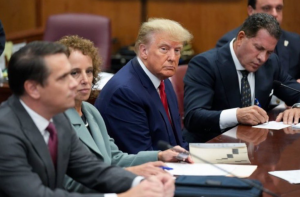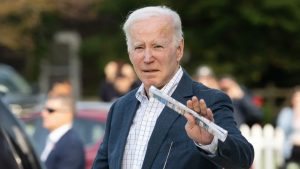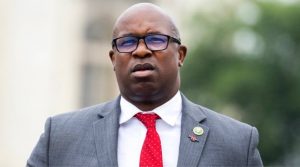Kosovo’s government early Monday accused neighboring Serbia of trying to destabilize the country as ethnic Serbs blocked roads and conducted other incidents in the north apparently in a dispute over vehicle license plates and identity cards.
Officials in Kosovo had decided to resume the practice of requiring vehicles that enter from Serbia to replace Serbia license plates with Kosovo plates. The reverse is required by Serbia for vehicles from Kosovo that go to Serbia.
Also read: ‘La la la la, Vladimir Putin’: Fenerbahce fans in trouble after chants against Dynamo Kyiv players
Kosovo also is planning to block its ethnic Serb minority from using only the Serbian identity cards when crossing the border.
A Kosovo government statement said that many “aggressive acts” like road blocking and shooting in the northern areas dominated by ethnic Serbs were committed Sunday and charged that they were incited by Serbia.
After discussions with European and U.S. partners, the “reciprocity” license plate and identity card plan was being postponed for a month, until Sept. 1, the government said.
Also read: Moscow goes after Big Tech for storing user data abroad
Kosovo was part of Serbia until an armed uprising in 1998-1999 by the territory’s ethnic Albanian majority triggered a bloody crackdown by Serbs. A NATO bombing campaign to force Serbia’s troops out of Kosovo ended the war. But Serbia refuses to recognize Kosovo’s 2008 declaration of independence.
Prime Minister Albin Kurti and President Vjosa Osmani blamed Serbian President Aleksandar Vucic for the protests.
“Vucic and (Petar) Petkovic are the main responsible persons for the riots,” Kurti wrote in Facebook. Petkovic is Belgrade’s official in charge of Kosovo.
Osmani also wrote on Facebook that “Vucic’s efforts to destabilize Kosovo” would fail.
Also read: ‘New Cold War’: Russia and West vie for influence in Africa
Vucic responded by saying that “we’ve never been in a more complex situation than today” and blamed Kosovo for the escalating tensions over the licenses plates and ID cards.
He accused Kosovo of trying to make itself into a victim and “taking advantage of the mood in the world where they think they can play cards,” he said, saying Kurti is trying to be seen in the same light as Ukrainian President Volodymyr Zelenskyy.
Vukic said Kosovo cannot stop its ethnic Serbs from using Serbian identity cards when they cross the border.
Also read: Russian forces launch missile attack on Kyiv area for the first time in weeks
The NATO-led peacekeeping mission in Kosovo said it was monitoring the “tense” situation in northern Kosovo and was “prepared to intervene if stability is jeopardized.”
The force said it would “take whatever measures are necessary to keep a safe and secure environment in Kosovo at all times, in line with its UN mandate.”
The mission, which has some 3,800 soldiers from 28 countries, is led by NATO but is supported by the United Nations, the European Union and others.
——-
Semini reported from Tirana, Albania.






